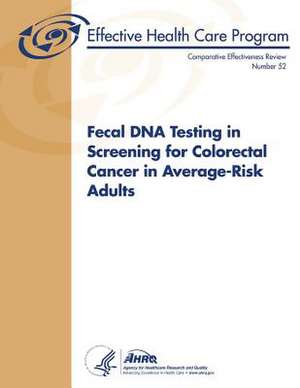Fecal DNA Testing in Screening for Colorectal Cancer in Average-Risk Adults
Autor U. S. Department of Heal Human Services, Agency for Healthcare Resea And Qualityen Limba Engleză Paperback
Preț: 122.40 lei
Preț vechi: 128.85 lei
-5% Nou
Puncte Express: 184
Preț estimativ în valută:
23.42€ • 25.44$ • 19.68£
23.42€ • 25.44$ • 19.68£
Carte disponibilă
Livrare economică 02-16 aprilie
Preluare comenzi: 021 569.72.76
Specificații
ISBN-13: 9781484094891
ISBN-10: 1484094891
Pagini: 88
Dimensiuni: 216 x 280 x 5 mm
Greutate: 0.23 kg
Editura: CREATESPACE
ISBN-10: 1484094891
Pagini: 88
Dimensiuni: 216 x 280 x 5 mm
Greutate: 0.23 kg
Editura: CREATESPACE
